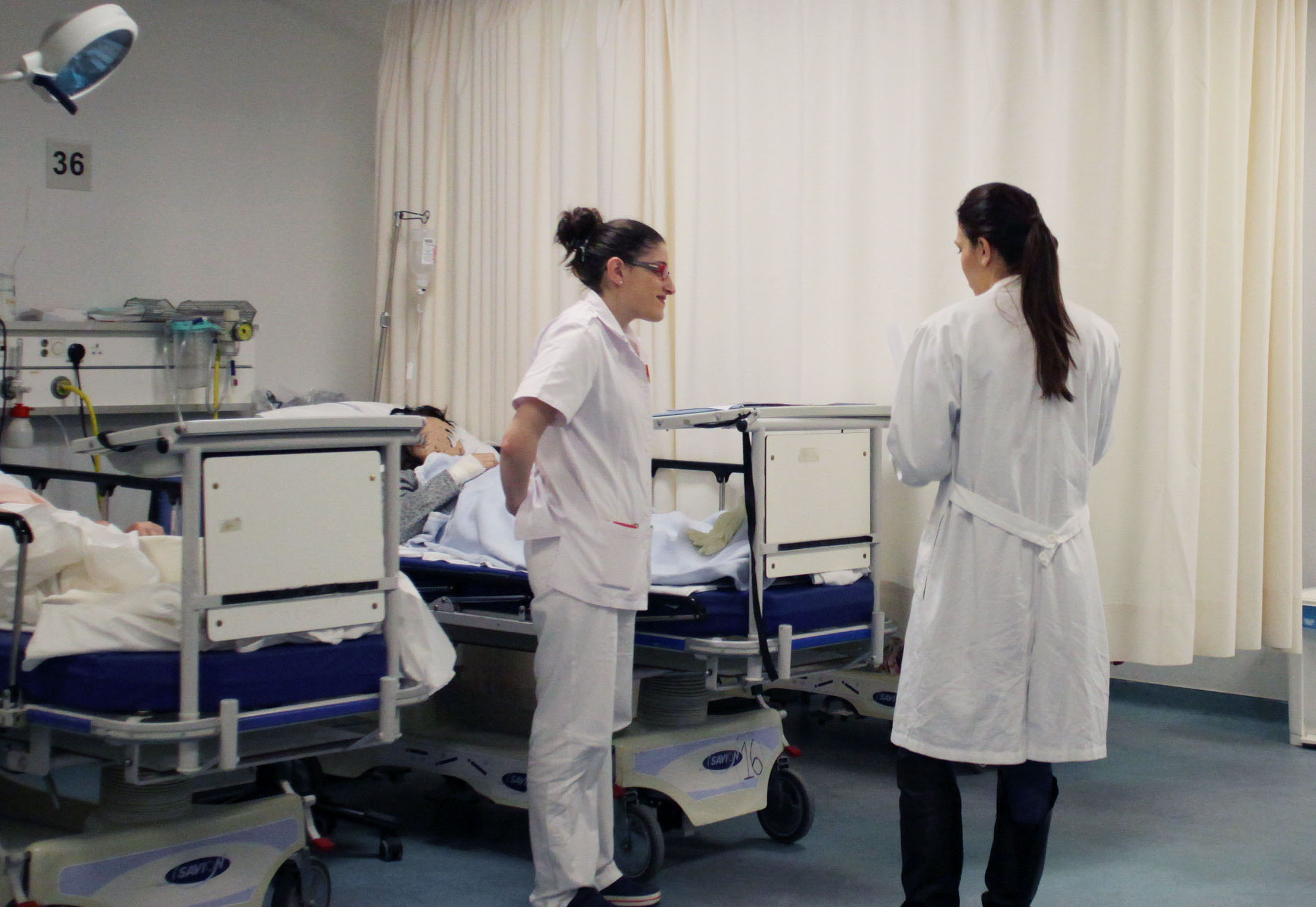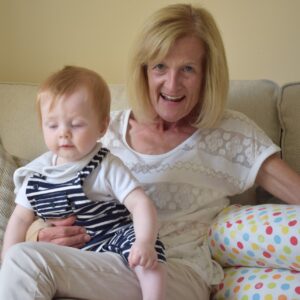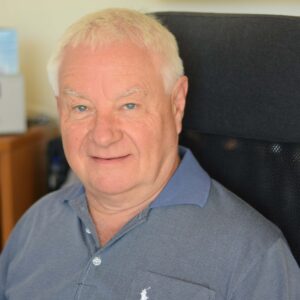After his wife was summarily dismissed by a Paphos physician, one man faced the arduous task of trying to have his complaint dealt with by the medical community
Robert Henderson has for months endured a Kafkaesque nightmare after attempting to report a case of apparent medical negligence which he says almost killed his wife.
The Paphos resident of 22 years has been on a crusade ever since “the near death of [his] wife due to the incompetent response of the in-patient attending physician at a Paphos clinic”.
His case highlights a seemingly disjointed system tasked with handling medical complaints, with patients’ groups alarmed at what they say is the outdated mechanisms in place.
Henderson detailed the harrowing experience the couple endured when his wife, aged 67, was taken to a private clinic in the district with suspected head trauma.
However, he said that without examining her the physician made an unrelated diagnosis and refused to sanction a CT scan.
“She was admitted to ICU where tests associated with the physician’s diagnosis were carried out. Some 16 hours later the required CT scan was finally sanctioned. The scan clearly revealed a life-threatening brain hemorrhage which ought to have prompted immediate referral to a neurosurgeon. Instead, my wife was refused return to ICU and deposited alone and unmonitored in a room at the far end of a corridor, where she lay unconscious for almost 30 hours,” he said.
Soon after, Henderson began the arduous task of seeking to file complaints and raise the alarm.
Senior sources from the Health Insurance Organisation (HIO) told the Sunday Mail that the case does appear to be a matter of medical negligence, but they are not the relevant authority to handle such incidents.
Head of the federation of Cyprus patients’ associations (Osak) Marios Kouloumas explained outdated laws and mechanisms mean that only the police – and eventually the courts – can decide on medical malpractice.
“It’s very difficult, you need a lot of money, it’s hard to prove malpractice – so it means that at the end of the day almost no doctors are punished, and that’s because the mechanisms are not what they should be,” he told the Sunday Mail.
Kouloumas also claimed that doctors often close ranks and are hesitant to testify against each other, meaning that claimants are forced to hire expensive experts from abroad.
Henderson said that during the incident at the clinic, the physician and nursing staff resolutely avoided engaging with him on details of his wife’s case.
“In desperation I implored our GP to intervene. Fortunately he did, leading to my wife’s transfer first to Paphos General A&E and then to Nicosia general hospital neurosurgical unit where the operation she required was promptly carried out. Without my intervention and the support of the GP it is highly likely my wife would not have survived,” he said.
Once the dust had settled Henderson sought to shine a light on the incident.
In October, he approached the ethics committee of the Cyprus Medical Association (Cyma) to file the complaint but says that what followed was “resistance and obfuscation followed by comprehensive incompetence”.
He describes a series of delays which ultimately meant that from October until January of the next year there were no developments. On January 31, he was told by the Cyma secretary that the ethics committee would next meet on February 8 to better consider his complaint in view of its seriousness.
He eventually received a letter from the committee on February 17, which explained that: “We have studied your case carefully and you do seem to have a case for both unethical and inappropriate behaviour and perhaps malpractice, reserving of course our final judgement when all investigations are completed.
“We must explain to you that in Cyprus law, our role as Ethics Committee of the Cyprus Medical Association is to investigate and pass judgement on ethical issues. By law, issues of malpractice are dealt with by the police.”
Early in May, with no news of the expected appointment of a CMA investigating officer he consulted Osak and was again directed to the police.
He went to Paphos CID but was instead taken to a more minor unit as “no one had died”. Discussions with officers there led him back to the initial office where he was again told that since no one had died he should go to Cyma.
A week later, he was informed that a Cyma investigating officer had been appointed who confirmed the seriousness of the situation.
Henderson said in a letter to the medical association that: “Your investigating officer confirmed the seriousness of my complaint and suggested the doctor and clinic should possibly face serious sanction and perhaps in the case of the doctor a suspension or withdrawal of his licence to practice. However, he said this would not be the outcome as the Cyma lacked the authority to issue such sanctions but he would carry out his investigation anyway.”
The next update came on July 14 when Henderson was informed by Cyma that the doctor in question had passed away “so obviously no further action is to be taken”.
Henderson said the reply further read that: “As far as the clinic service and behaviour are concerned the Cyprus Medical Association is not the licensing body for clinics or hospitals so we have no power to investigate them. I suggest you send your complaint to the Ministry of Health and the chairman of the HIO.”
A recap, according to Henderson: Formal recognition of the complaint by Cyma occurred on October 26, 2021. Advised on June 29, 2022 that the investigation had commenced. It then terminated on July 14, 2022 following notification of the death of the doctor concerned.
Asked for comment by the Sunday Mail, head of Cyma’s ethics committee Michalis Anastasiades insisted that all the appropriate steps were taken.
“The case was reviewed in line with the obligations of the ethics committee and as laid out in the law, the complainant was informed of these steps – which he himself confirms.
“He is entirely within his right to make the criticism that the mechanisms are not functioning properly in Cyprus but the procedures which had to be observed were carried out as normal” even if this course of action was abruptly disrupted by the death of the doctor.
Anastasiades reiterated that Cyma covers disciplinary offences as laid out in the law and written in the code of ethics.
However – Henderson paints a different picture, as he said that after expending hundreds of hours attempting meaningful engagement with the regulatory system he has come to realise that this is not possible.
“The medical profession in Cyprus does not have a functional regulatory system. That which presents itself as a regulatory system is neither comprehensive nor cohesive. It is merely a grossly and fundamentally dysfunctional pretence of a system,” he argued.
Kouloumas echoed similar sentiments: “There are certainly many issues and there have been many other complaints but unfortunately in Cyprus the system is outdated – for investigating malpractice, unfortunately there are no modern mechanisms or methods in place to help the patients and ensure that there are easy and swift investigations.”
Henderson said he is not seeking compensation or punishment but is instead campaigning to raise awareness of the issue so that changes can be made to the regulatory framework.
Asked about this, Kouloumas said: “Changes? There must be the political will for it, from the state, from the health ministry, from government and from parliament – but as of now, unfortunately, we don’t have that.”
Gaping holes in the regulatory framework of the medical profession were discussed earlier this month at the House health committee, where MPs heard that perhaps dozens of doctors are practicing without the requisite qualifications.
It appears that several otherwise unqualified individuals practicing medicine had managed to slip through the cracks because of poor coordination between the Cyprus Council of Recognition of Higher Education Qualifications (Kysats) and the Medical Association.
Speaking to the Sunday Mail just before the House committee meeting took place, Kouloumas said that: “We must update the law, we have to look at how complaints can be reviewed immediately along with swift recourse.
“There is a lack of political will and there’s no person to take the hot potato because some interests will be harmed, so there are reactions against [change] from some quarters.”









Click here to change your cookie preferences